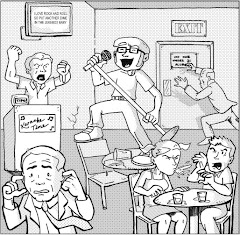Something about the teasers for Live Free and Die Hard has inspired me to catch its midnight premiere later tonight, an outing I’ve heretofore exclusively reserved for comic book movies only. I don’t remember the previous three films as vividly as I would, say, the Lethal Weapon franchise, but Bruce Willis’ triumphant return as John McClain, like Harrison Ford’s donning the Indiana Jones mantle again, is downright inspiring. Truly, McClain is the Robinson Crusoe of our generation . . . and until today, I had no idea who Robinson Crusoe was.
Oh, I knew Robinson Crusoe was a famous literary figure, a shipwrecked victim of circumstance that inspired various similar stories, probably including Gilligan’s Island and Tom Hanks’ Castaway. I didn’t know Crusoe’s adventure was credited as the first penned in English, formatted as a legal document to add a layer of realism to the account. Unfortunately, those accomplishments are lost in this Dell comic book adaptation, but considering that I, and undoubtedly countless youth that first read this issue 1963, didn’t know the whole story in the first place, this issue definitely accomplished its mission. Who says comics can’t be educational, too?
In fact, I didn’t just learn about the plight of Robinson Crusoe, but I learned from it, and if I’m ever stranded on a deserted island (if any still exist), I’ll definitely take a page from his playbook to survive. See, based on this comic, Crusoe’s first move was to salvage what supplies he could find on the wrecked ship, then find shelter in a cave, around which he built a literal picket fence to protect his abode from predators. Living off of wild goats’ milk and tortoises for a time, Crusoe eventually learns that he isn’t alone on the island, and he saves a native from a band of cannibals, inadvertently earning a companion he dubs Friday. Held at bay on the island by the cannibals’ village on the neighboring mainland, Crusoe and Friday nearly rescue a passing ship’s crew until they suffer the same fate as Robinson’s vessel – so when another arrives, our heroes are hesitant to help, but when that crew conquers its pirating betrayers, Crusoe and Friday have a one way ticket home.
And how long was Crusoe on that island? Try twenty-eight years, two months, and nineteen days! He puts it best as he leaves his island prison: “After all these years, I feel as if I’m leaving home rather than returning home!” Take that, Tom Hanks! Four years later, you cracked up and starting talking to a volleyball!
Assuming this adaptation is somewhat abbreviated from Daniel Defoe’s original novel, the anonymous contributors to this issue kept a suspenseful pace throughout this version, and the artist’s sketchy ink style, not unlike Rick Leonardi’s, avoided a sloppiness by favoring fluidity, epitomizing the rugged nature of our protagonist’s struggle. For a comic book from the early ‘60s, when artists seemed to prefer solid visuals (and in fact were often the primary storytellers, with the writers layering some semblance of script on afterward), this style strikes me as a bit of a gamble, especially with such reverent source material, but the effort is successful. I certainly didn’t feel stranded in a barren comic book; this issue offers plenty of entertainment.
Interestingly, indicated as a number one, Robinson Crusoe seems to tell the entire tale, so unless our hero gets stranded again, like some strange Lost season finale twist, I don’t see this continuing as a series. Just well, though. There are plenty of other classic works of literature I wouldn’t read otherwise if not as a comic book.
On Sunday night, I briefly examined the concept of television series adaptations, but during the past year, I haven’t had a chance to study the phenomenon from other media. I would imagine that, despite the stereotypical verbose vernacular, classical literature makes for the best comic book adaptation, since, as one of the primary forms of entertainment in its time, prior to broadcast media, its content had to stimulate its audience, asserting mental imagery that makes for perfect inspiration for sequential art. Were the forefathers of literature writing comics two hundred years before the medium was invented? Perhaps no form of art is really an island . . .




1 comment:
Hey! I have got a comic called "the further adventures of Robison Crusoe" It has no number on it, but its got Copyright dated in 1952 Pictorial Media Inc. And I cant find no information of it any were, can you help me?
Post a Comment